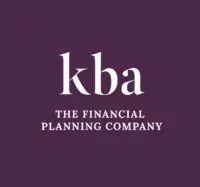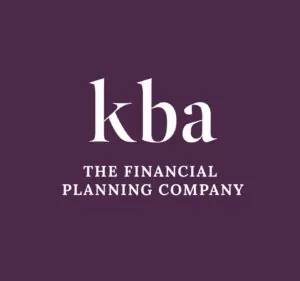While being footloose and fancy free comes with many positive benefits, single life can prove more expensive. From household bills to tax and holidays, balancing all the bills alone can require careful budgeting and extra planning.
Whether you find yourself single by choice or amid unexpected or challenging circumstances, you may find that you need to approach your financial plan with particular care and consideration.
So, here are four practical pointers to help you gain confidence and take control of your finances if you’re single.
1. Ensure you save enough for retirement
As a single person, you’ll have similar costs to those of a couple living in the same place and sharing expenses between them. Apart from a 25% single-occupancy discount on your Council Tax bill, you’ll need to cover the full cost of bills, including energy, broadband, TV license and so on, alone.
Indeed, according to figures from Retirement Living Standards, a single person’s expenditure is around two-thirds that of a couple. If you don’t have relatives living close by, you may also need to account for the additional potential cost of later-life care.
Reporting on the data, FTAdviser reveals that, to afford a moderately comfortable lifestyle in retirement, singles will need a pension pot worth £315,000 – that’s £160,000 more than someone in a couple.
The good news is that we can help you save towards your retirement goals. From maximising tax-efficient pension contributions, to ensuring your investments match your appetite for risk, we can work with you to devise a financial plan that’s bespoke to you and your long-term needs.
We’ll also use sophisticated cashflow modelling software to illustrate when you can afford to retire and how sustainable your desired income may be. If your ideal lifestyle isn’t realistic, we can suggest ways you may correct any shortfall and guide you towards the retirement you hope to enjoy.
2. Make the most of available tax allowances
Making the most of tax reliefs can help you to retain more of your wealth and progress towards your financial goals. So, be sure to make the most of the allowances available to you.
These may include:
- Taking dividends up to your Dividend Allowance of £1,000 (falling to £500 in 2024/25)
- Maximising your ISA allowance (£20,000 in 2023/24) to make the most of tax-efficient saving and investing.
- Crystallising gains up to your CGT annual exemption of £6,000 (falling to £3,000 in 2024/25).
3. Protect your financial wellbeing
If you live with a partner and fall ill or are forced to take an extended period off work due to injury, it’s likely there’s a second income to fall back on while you recover.
Unfortunately, that’s not the case if you’re single. Yet, despite your ill-health or inability to work, you’ll still have financial commitments you need to meet.
This is why financial protection is crucial. Ensuring you have a safety net of capital or income when you need it most could help you to maintain your lifestyle.
As well as ensuring you’re able to meet your mortgage repayments and can afford your regular household bills, the right protection could also help you keep on top of regular savings or pension contributions. This, in turn, could help keep your future financial goals on course.
4. Consider how you’d like to distribute your assets and draw up an estate plan
If you’re single, you’ll need to consider how you’d like to distribute your wealth when you pass away.
Without a will in place, under the rules of intestacy, your assets would usually pass to your children. If you don’t have children (or grandchildren), the order in which relatives inherit your estate is:
- Parents (if they are still alive)
- Siblings
- Half-siblings
- Grandparents
- Aunts and uncles
- Half-aunts and uncles.
Should none of the relatives mentioned above survive you, your estate is classed as “ownerless property” and will be passed to the Crown.
Instead, by writing a will, you can ensure that your assets pass to your chosen beneficiaries on your death.
Having a will is just one important estate planning step. But being single may also mean that your estate is at more risk of being liable for Inheritance Tax.
After your death, all of your assets over the basic IHT nil-rate band (£325,000 in 2023/24) will likely be taxed at 40%, unless you leave them to an exempt beneficiary such as a UK-registered charity.
Unlike widows or widowers, you can’t benefit from the transferable IHT nil-rate band. Similarly, if you have no direct descendants, the additional residence nil-rate band (£175,000 in 2023/24) won’t benefit you.
Read more: 5 top estate planning tips you could use to help you mitigate Inheritance Tax
It’s also important to think about who you want to make important decisions on your behalf, should you become incapacitated.
If you were in hospital for an extended period, or you lose mental capacity, who could look after your personal finances or make decisions about your care?
Setting up a Lasting Power of Attorney (LPA) could bring you peace of mind.
Get in touch
Whether you’re single or in a committed relationship, we’re here to help can ease some of the stress of managing your finances.
We can carry out a full review of your financial plan, discuss your long-term goals, and help you form a plan to achieve them. Better still, our financial planners vary in age – from their 20s to their 70s. So, whatever stage of life you’re at, we can introduce you to someone who’s been there themselves.
To find out more about how we can help, please get in touch.
Email contactme@kbafinancial.com or call us on 01942 889 883.
Please note
This article is for general information only and does not constitute advice. The information is aimed at retail clients only.
HM Revenue and Customs’ practice and the law relating to taxation are complex and subject to individual circumstances and changes which cannot be foreseen.
The Financial Conduct Authority does not regulate estate planning, cashflow planning, tax planning or will writing.
A pension is a long-term investment not normally accessible until 55 (57 from April 2028). The fund value may fluctuate and can go down, which would have an impact on the level of pension benefits available. Past performance is not a reliable indicator of future performance.
The tax implications of pension withdrawals will be based on your individual circumstances. Thresholds, percentage rates, and tax legislation may change in subsequent Finance Acts.
An ISA is a medium- to long-term investment, which aims to increase the value of the money you invest for growth or income or both. The value of your investments and any income from them can fall as well as rise. You may not get back the amount you invested.
Note that life insurance plans typically have no cash in value at any time and cover will cease at the end of the term. If premiums stop, then cover will lapse.
Cover is subject to terms and conditions and may have exclusions. Definitions of illnesses vary from product provider and will be explained within the policy documentation.
Will writing is not part of The Openwork Partnership offering and is offered in our own right. The Openwork Partnership accepts no responsibility for this aspect of our business.
Approved by The Openwork Partnership on 30/01/2024.



